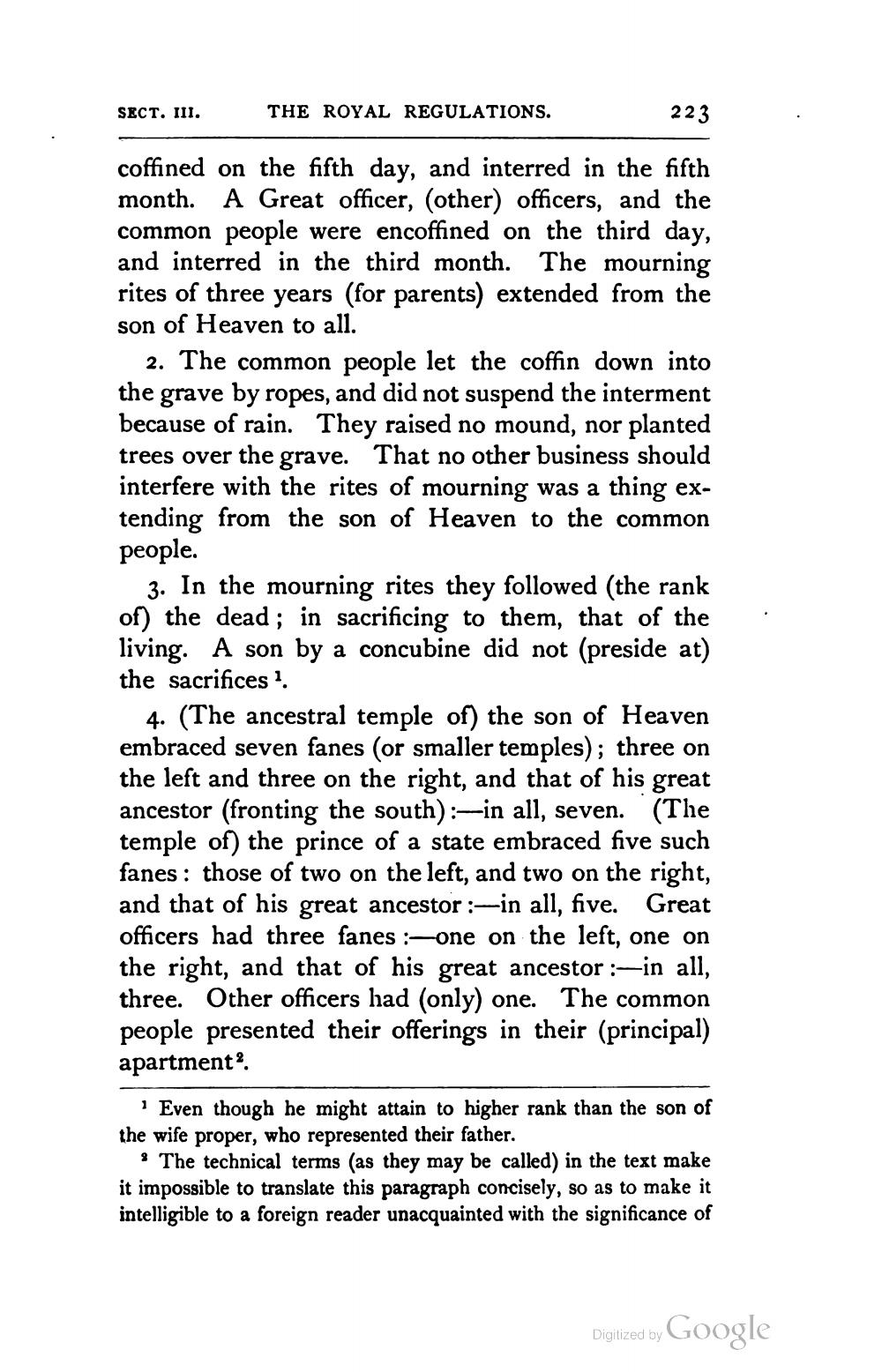________________
SECT. III.
THE ROYAL REGULATIONS.
223
coffined on the fifth day, and interred in the fifth month. A Great officer, (other) officers, and the common people were encoffined on the third day, and interred in the third month. The mourning rites of three years (for parents) extended from the son of Heaven to all.
2. The common people let the coffin down into the grave by ropes, and did not suspend the interment because of rain. They raised no mound, nor planted trees over the grave. That no other business should interfere with the rites of mourning was a thing extending from the son of Heaven to the common people.
3. In the mourning rites they followed (the rank of) the dead ; in sacrificing to them, that of the living. A son by a concubine did not (preside at) the sacrifices?
4. (The ancestral temple of) the son of Heaven embraced seven fanes (or smaller temples); three on the left and three on the right, and that of his great ancestor (fronting the south) :-in all, seven. (The temple of) the prince of a state embraced five such fanes: those of two on the left, and two on the right, and that of his great ancestor :-in all, five. Great officers had three fanes :-one on the left, one on the right, and that of his great ancestor :-in all, three. Other officers had (only) one. The common people presented their offerings in their (principal) apartment
Even though he might attain to higher rank than the son of the wife proper, who represented their father.
* The technical terms (as they may be called) in the text make it impossible to translate this paragraph concisely, so as to make it intelligible to a foreign reader unacquainted with the significance of
Digitized by Google




